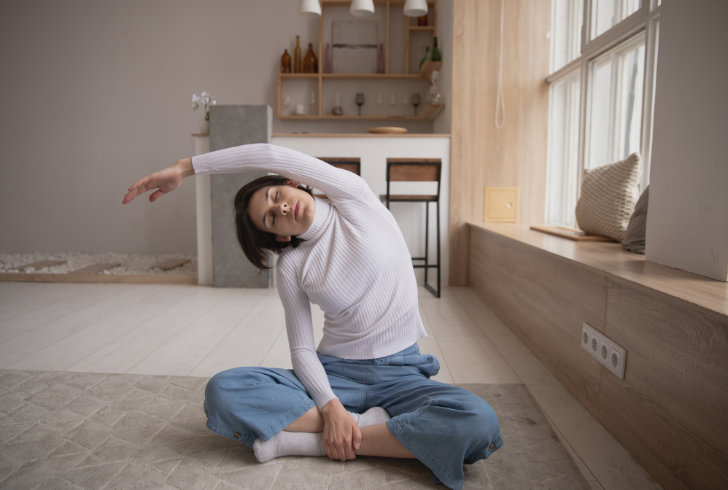New research reveals a surprising yet simple strategy for better rest: moving your body every day. Rather than depending on high-tech gadgets or lengthy nighttime rituals, studies now highlight how consistent physical activity might do more for sleep than any lavender mist or blackout curtain ever could.
A recently published study in the Journal of Physical Activity & Health underscores that getting at least 10 minutes of moderate-to-vigorous activity over five days can lead to deeper, more restorative sleep. That’s right — sleep quality didn’t hinge on marathon workouts but simply staying active in a meaningful, sustainable way.
The Link Between Sweat and Sleep
Although bedtime routines often include herbal teas or sound machines, those extras might not matter much without physical movement. According to lead researcher Chris Corral from The University of Texas at Austin, people who exercised more frequently experienced more energy, less stress, and better sleep overall.

Pexels | Gustavo Fring | Daily exercise is more effective for sleep than high-tech gadgets, research shows.
Doctors like neurologist and sleep expert Dr. W. Christopher Winter uses the chemistry of the brain to explain this relationship. Physical activity raises levels of neurotransmitters like adenosine, which encourages deep sleep. Exercise also elevates feel-good hormones such as serotonin and dopamine, both of which can ease anxiety and boost mood — two major players in achieving quality rest.
Also, regular workouts help reinforce the body's internal clock. “Daily exercise creates a time signal for your brain,” Dr. Winter says. “We call this a zeitgeber — it tells your body when it’s time to wind down.” That predictability plays a major role in training the brain for restful sleep.
A Little Effort Goes a Long Way
This isn’t about crushing hours at the gym. The study followed 69 adults over eight months using Fitbits to track movement and sleep patterns. Even short bursts of moderate activity throughout the week led to better outcomes. Walks, light jogs, or even standing up more often seemed to make a difference.
For those wondering how much is enough, experts agree: consistency matters more than intensity. Corral noted that spreading workouts across the week delivers better benefits than trying to cram it all into one or two days.
Best Workout Types for Restful Sleep
Not every workout works the same way for everyone, but some exercises shine when it comes to supporting sleep:
1. Cardio - Running, cycling, or even brisk walking help increase heart rate and tire the body naturally.
2. Strength Training - Lifting weights or using resistance bands improves overall stamina and may support hormone balance.
3. Stretching or Yoga - These forms promote relaxation and muscle recovery, making them ideal close to bedtime.
4. Pilates and Bodyweight Exercises - These improve core strength and balance while reducing mental tension.
Dr. Bert Mandelbaum from Cedars-Sinai Orthopaedics points out that engaging in any movement daily supports better sleep and long-term health. “It doesn’t need to be extreme. Just move your body — even lightly — and you’ll likely notice better rest,” he advises.
Start Small, Sleep Big

Pexels | KATRIN BOLOVTSOVA | Just 10 minutes of daily movement can boost sleep, mood, and stress.
Adding just 10 minutes of consistent movement daily could bring better sleep, elevated mood, and reduced stress. That’s a pretty good return for a minimal investment. Even casual movement like walking during breaks, taking the stairs, or doing light stretches at night can make a difference.
Since quality rest fuels everything from energy levels to immunity, prioritizing physical activity might be one of the most practical changes a person can make. It doesn’t demand gym memberships or intense routines — only commitment and a willingness to move.
One Habit, Multiple Wins
Making room for regular physical activity isn’t just about health or aesthetics. It directly influences how well the body rests and recovers overnight. The bonus? Better sleep enhances focus, mood, and productivity the next day. That cycle keeps building as movement becomes part of a daily rhythm.
So while there’s no single formula for perfect sleep, science now shows that moving the body consistently stacks the odds in its favor.
Sleep doesn’t have to remain a mystery or a struggle. With small daily movements, the body resets naturally and rests more deeply. Keep moving, and restful nights will follow.




